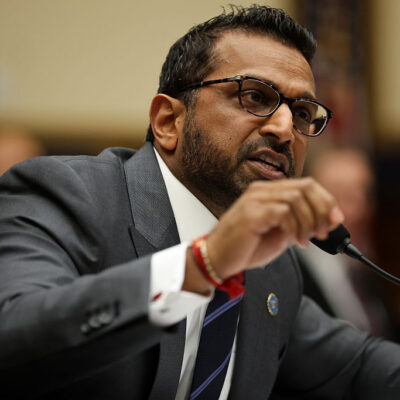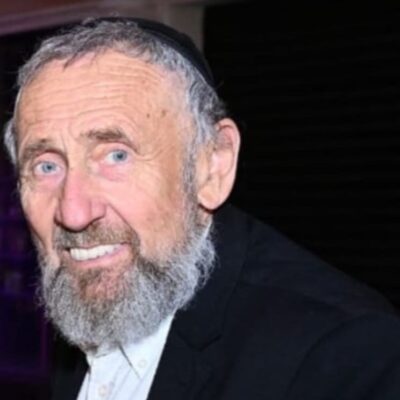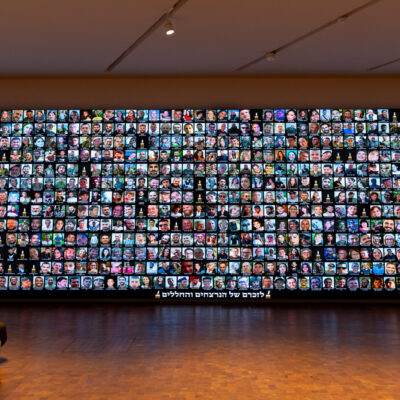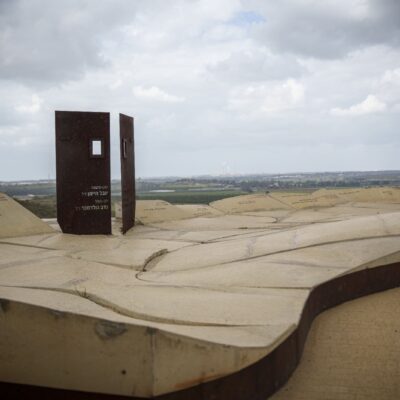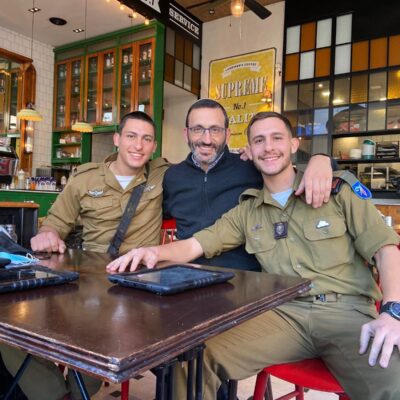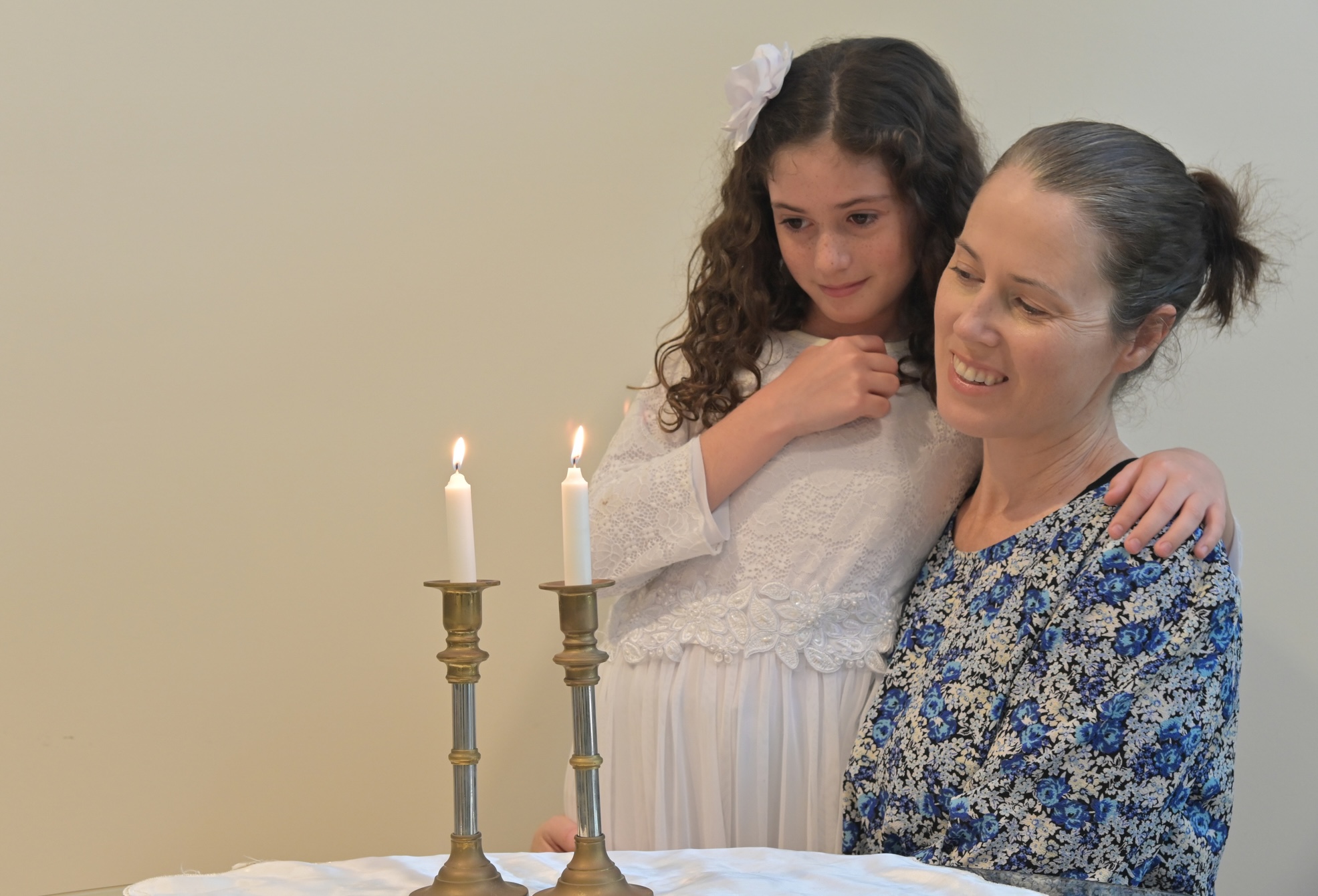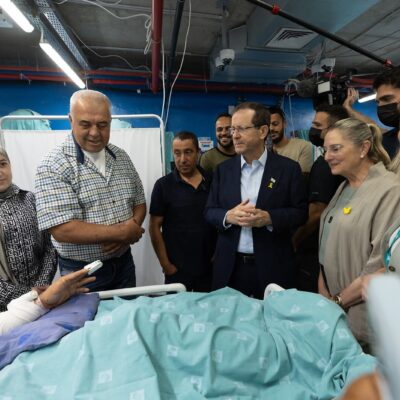Q&A
Gary Torgow takes helm of JFNA board, looking to get ‘every hand on deck’ in face of rising challenges
'We have to stick to the responsibilities that we have without getting too deep into the political fray'

Wikipedia
In June, less than a week after Michigan businessman Gary Torgow was tapped to chair the board of the Jewish Federations of North America, Israel preemptively struck Iranian nuclear sites and critical military sites, launching a war that sent the country, region and Jewish community once again reeling.
In the 12 days that followed, 28 Israeli civilians were killed in Iranian ballistic missile strikes and thousands were injured. Travel was suspended, leaving thousands of Americans stuck in Israel and tens of thousands of Israelis stranded abroad. The Iran-Israel war was one of many events shaping the dizzying and often volatile landscape Jewish leaders have faced in recent years.
Torgow’s predecessor, Julie Platt, steered JFNA’s board through a tumultuous three-year period bookended by the collapse of the Israeli government’s previous coalition in June 2022, and Israel’s war with Iran in June 2025. Platt’s term was most shaped by Hamas’ Oct. 7 attacks, in which the terror group killed 1,200 people, kidnapped more than 250, launching an ongoing war in the Gaza Strip and triggering a wave of antisemitism that has reshaped communities and redefined Jewry’s global position.
Nearly two years since the attacks, Torgow is stepping into his role as many of the challenges that the North American Jewish community has grappled with over the last few years have deepened and become chronic. Israel’s war with Hamas is now the longest active conflict since the nation’s war of independence, global antisemitism looms ever-present and increasing security needs have been highlighted by recent fatal attacks in which young couple Sarah Milgrim and Yaron Lischinsky were shot dead outside the Capital Jewish Museum — and Karen Diamond, an 81-year old Holocaust survivor, succumbed to her wounds after being firebombed at a march in support of the Israeli hostages in Boulder, Colo.
Now one month into his three-year term, eJewishPhilanthropy spoke with Torgow to discuss the current moment for North American Jewry, heightening demands on Jewish philanthropy and his past work with the Orthodox Union and the NAACP.
This interview has been edited for length and clarity.
Nira Dayanim: You’ve stepped into this role at JFNA as many of the cascading crises that the Jewish community has faced over the last few years — the impact of Oct. 7, rising antisemitism and the ongoing war — are becoming somewhat chronic. I’m wondering how you’re navigating this moment. In your perspective, where do we go from here?
Gary Torgow: We are clearly living in times that require and demand every hand on deck to work to strengthen and support the Jews across the world. It’s clearly a time when we need unity, we need generosity, we need kindness. I’m hoping that with the collective efforts of all of the Jewish people in our communities and all the many organizations and individuals, we can help alleviate some of the pain and the suffering around the world. We can strengthen the bonds of the Jewish people, and we can empower the next generation to continue to lead with Jewish pride and a lot of sense of responsibility for the Jewish people.
We’re in the month of Av. It’s a time when the Jewish people are really reflective about the tragedies that have marked our history, and so we have to internalize the lesson that is really echoed throughout every generation, that when we are united, we endure, and when we are divided, we are very vulnerable. It’s not just a moment of reflection, it’s really a call to action. Our conversations, our commitments, our voices, have to really speak as one, to support Israel, to defend our people and to be loyal to each other. And unity isn’t just our strength, it’s really our shield against all of the troubles that we see. So I’m deeply concerned about the rising levels of antisemitism, the struggle to maintain Jewish identity, safety and security of the Jews around the world. And I think we all know that the events on Oct. 7 have magnified these vulnerabilities and challenged us to continue to reaffirm our purpose and connection to each other, and I think that’s what we have to do today. That’s our most important responsibility.
ND: We are at a point where the immediate unifying effect of Oct. 7 is starting to fray, and we are seeing more fragmenting in the community surrounding domestic and Israeli policy. There are some real and increasing differences in how Jewish people view the current moment. How do you approach bridging those gaps?
GT: We do have struggles amongst each other, but I think the way to bridge those gaps is to have lots of important conversations. To be very mindful, to listen, to give everybody an opportunity to share their viewpoints and to create a unified, indispensable voice for all Jews, no matter their background, their generation, their observance.
We have to foster inclusion. We have to stick to the responsibilities that we have without getting too deep into the political fray, which I know is very troublesome. We have to really galvanize the next generation to stand at the forefront of advocacy, not fighting. We have to work together to combat antisemitism. We have to strengthen Jewish values, and we have to really do as much as we can to have a deep and sustained investment in Jewish life. We have to work for the promulgation of Jewish education, Jewish identity. One of our current Jewish Federations of North America pillars is to encourage Jewish day school attendance. It has to be a critical priority, because we know that when Jewish children go to Jewish day schools, Jewish camps, attend [trips to Israel], they stay closely connected to the Jewish people.
ND: On the topic of your community specifically, I know that you’ve worked extensively in Detroit to build cross-racial and interfaith relationships. At a fraught moment — with antisemitism rising and many feeling an urge to silo, I’m wondering how this experience factors into your role at JFNA. What would you say to the skeptics?
GT: So we have learned in Detroit that it’s not just the insular Jewish community, it’s a broad, general community. We work closely with our Arab American neighbors, who are not far, not distant from us. We work to build relationships and the strength of things that can unify us. We work closely with the African American community, the NAACP. We’re all in a shared world that’s very complicated, and each one of us has our own struggles and challenges. And we have found that when you work together to be concerned about their challenges and their concerns, it becomes a mutually respectable creation of camaraderie.
It’s very important in this world to stand with our friends and encourage our friends in the areas that they’re struggling with, and to really share the moment, as I think everybody is feeling it. We’re in a time of a bit of darkness, and the more light that we can bring to each other, the more light we can bring to the world, the safer the world’s going to be, the more beautiful the world will be, and the more camaraderie there will be.
ND: In recent years, much of the surge in Jewish giving towards these causes has been reactive — emergency funds and security concerns and crisis relief. And these are causes that require immense investment in terms of manpower and money. Many in the Jewish philanthropic sector are feeling fairly spread thin. Should we be shifting the philanthropic conversation towards long-term vision and investment? How?
GT: Great question. So it’s sort of bifurcated into two things. We have a day-to-day responsibility in our communities to continue to support the social services, the day schools, the Jewish community centers, the Jewish family services, the efforts that have to be
implemented and continued to secure the Jewish communities around North America. So we have a very critical and continuing responsibility to grow and strengthen the Jewish communities, maintain our synagogues, our security, make sure that we’re really watching very carefully, local Jewish communities that we live in, and then the national and international Jewish community.
Then we have to look to the rest of the world. Jewish Federations since Oct. 7, 2023, raised nearly $900 million in emergency funds, $500 million of that in just a few weeks of war. Just a few weeks after Oct. 7, we gathered as a national Jewish community. The generosity was incredible, some of the most wonderful Jewish communities and some of the most wonderful Jewish individuals and families and foundations that have taken on the responsibility. And we’re really fortunate to have so many partners on the ground, which in Israel, which allowed us to begin allocating funds to the areas that needed it most — basic human needs, food security, medical care, mental health, trauma care. I have a wonderful leader in Israel, Becky Caspi, who’s leading a group of heroes in Israel who are taking the money that we are funding in North America and finding the right places for it. Ten days ago, I was in Bat Yam where a missile attack occurred in June… seeing Jewish community come together for relocation help and rebuilding was heartfelt, and it was just amazing to see the efforts to rebuild that community, to find places to settle the thousands that lost their homes and apartments. Hopefully, as the war begins to shift down with God’s help, the needs in Israel have shifted really from basic frontline needs to post-traumatic healing, economic and agriculture, restoration, housing, communal rebuilding and strengthening the Israeli community. So I think the next phase is, of course, to take care of our local responsibilities, but also to look to the next set of circumstances for the Jewish people in this sort of rebuilding Israel campaign.
ND: On the domestic front, I’ve heard concern from philanthropists about the looming task over the next few years of meeting, for instance, social services needs as a result of cuts to Medicaid, SNAP, etc. As need increases domestically, how do you approach that balance?
GT: The Jewish community in North America is extremely blessed. We have tremendous resources. We have fantastic philanthropists, we have amazing foundations, and we have amazing communities. There are 141-plus federations, and they are really rising to the occasion in ways that only these times could create. And so yes, the social service needs for local Jewish communities are growing. The mental health needs are growing. Strengthening those that are struggling economically, the poverty issues that are not just the Jewish community’s, but throughout the country, is really a responsibility that we take seriously and we have to focus on. We have to raise more and more money to make sure that we are contributing to what the communities are suffering from, and we are struggling with government funding, and so we need to figure out ways to supplement that.
We live in a great country, even in spite of the different times and the struggles that our government goes through. It’s really part of our responsibility, in partnership with the government, in partnership with social service agencies, in partnership with our states and our cities, to make sure that nobody falls through the cracks. I know that our food banks are growing. I know that our social service contributions are growing. I know that the Jewish community is standing up stronger and stronger, and there’s no better moment for us to open our pocketbooks and do everything we can if we want to get blessings from heaven. The best way to do it is to use higher levels of kindness for each other. Every time heaven looks down and sees that we’re helping heaven’s children, God’s children, heaven looks down and says, “Wow, we need to take care of those wonderful people who are taking care of our children.” I refer to it as the “kindness trigger.” You want to get blessings from heaven? Do some kindness on this earth.
ND: Prior to working with JFNA, you’ve also held a few positions at the Orthodox Union. An Orthodox background definitely brings a distinctive voice to JFNA, whose leadership generally comes from the more progressive denominations. How do you view that dynamic?
GT: I think the Jewish Federations of North America have done a remarkable job of uniting the communities. And we see less and less labels, and we see more and more unity. And I see it also in the Orthodox community. You mentioned the Orthodox Union, they’ve done a wonderful job of making sure that we stand united as a group, as a community. I think relationships, diverse relationships, are grounded in collaboration, in humility and in compassion, and we have to listen deeply to each other. We have to value every voice. We have to build bridges that connect people across different backgrounds and perspectives and experiences, and we must be committed to lifting up every single person and creating shared purposes. So empathy and trust, and I see it in the JFNA leadership, our great CEO, Eric Fingerhut, Shira Hutt, executive vice president. I think a key part of what we have to do as a Jewish community today is look to our similarities and our areas of collaboration and love for every Jew.
I’ve been very involved in a program in Detroit called Partners Detroit, which is an effort on the informal education side, to bring Jews together, to study together, to learn together, to have a Shabbat experience together, to experience those things that we have in common. And I’ve seen that to be the huge success of a strong Jewish community. And the Jewish Federations of North America are super good at that. They are. They concentrate on the big tent, making sure that all Jews get included. And we don’t worry when a Jew needs something, which synagogue they pray in, or what school they go to. We concern ourselves with every individual Jew. And I think if, although I’ve never had this conversation with God, I think if we asked him, he would say, take care of our people. Look after every single Jew, be the shepherd to every member of the flock. And when you do that, we’re going to see the greatest of success.
ND: So looking forward to the next three years, how will you define success on the priorities that you have listed?
GT: I hate to focus on myself, so I’m going to [answer] this as a “we.” But I think success over these years in the future is going to be a continuing effort to unify the Jewish people, support Israel, create more pathways for local, national and international cooperation, bridging socioeconomic,ideological and generational divides.
We have a very big job to strengthen the next generation of leaders who are stepping forward and encourage them to shape our future with passion, with purpose and faith.
With Jewish education — It’s got to be thriving. Jewish day schools — it’s got to be thriving. Jewish camps — it’s got to be thriving. Nothing is more important today.
It will mean unprecedented resources raised to support our mission and a relationship with Israel that’s stronger, more resilient, more deeply intertwined with the identity of North American Jewry and… most importantly, ensuring that every Jew in every community worldwide feels connected to something larger than themselves. And if we achieve that, we’re going to build something really enduring and transformational and worthy of the generations.

 Add EJP on Google
Add EJP on Google
